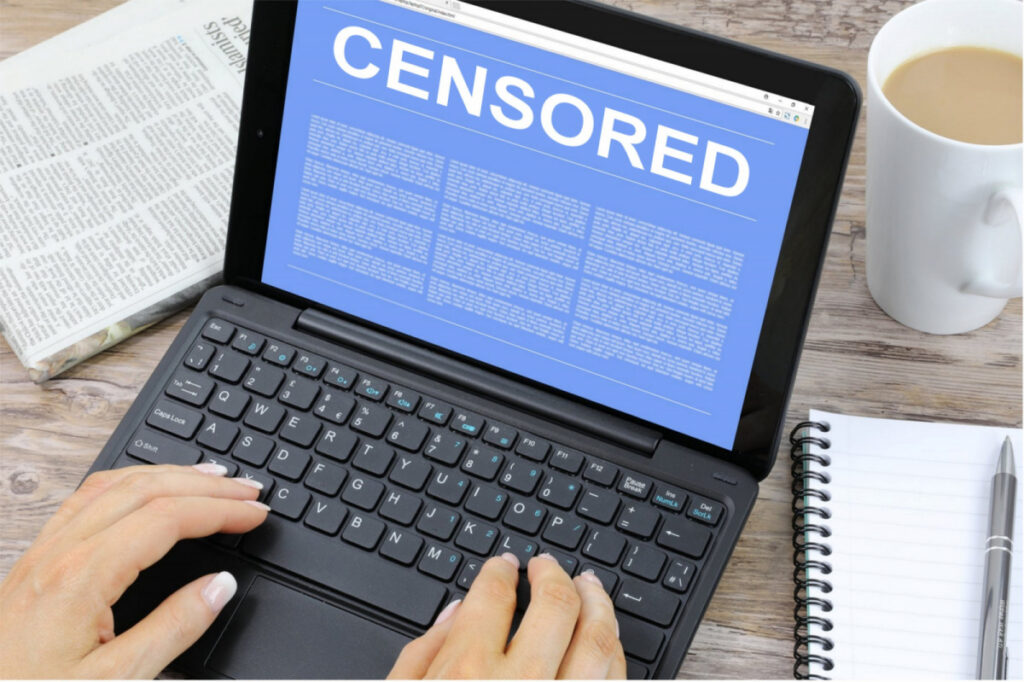When scrolling through your social media feeds, you may be perplexed by the term “NSFW” This four-letter acronym can appear in many different settings with various potential meanings. But what exactly does NSFW mean on social media, and why should you care about it?
This blog post will explore the NSFW meaning on social media, exploring how recognizing NSFW content can benefit users and businesses. Keep reading for information about the importance of understanding this helpful shorthand for banned or controversial topics on your favorite networks!
Table of Contents
The History of NSFW
The phrase “not safe for work” (NSFW) has been around since the internet grew in popularity in the early 2000s, with most platforms displaying specific warnings and content deemed NSFW. On social apps, NSFW content was often used to get viewers’ attention and engagement, but their use also caused controversy. While it became increasingly more difficult for creators to post and monetize directly on social media, the creative community started to find indirect ways of utilizing NSFW content to draw eyes toward their accounts.
After a few years of heated debates about online freedom of expression versus censorship, most popular platforms have imposed tighter rules for NSWF content but are now allowing the posting of such material within certain limits. Despite its past controversies, NSFW content continues to be a powerful tool for internet creatives looking for ways to make their mark online.

The Basic Meaning of NSFW on Social Media
Since NSFW stands for Not Safe For Work, it is often used on social media as a tag to show what someone is about to post may not be suitable for an office environment. It’s an acronym that started off as an indicator of explicit adult content but more recently, it’s become more versatile. It could be a romantic scene from a movie with sexual overtones, a raunchy comedy joke, or even violent content. Whatever it is, people are now including the NSFW social media apps tag to let readers know they should take care not to be caught by their boss or colleagues looking at the content.
Other Meanings of NSFW
In addition to its original meaning, NSFW on social media has adopted a few other meanings. These include:
- Not Suitable for Family – The phrase “not suitable for family” is often used to denote something that may not be appropriate for audiences of all ages. However, the abbreviation ‘NSFW’ has come to mean a much broader scope of content and activity. It can signify any online material or language that is far too complex, embarrassing, or profane to be considered safe in the presence of one’s family.
- Not Suitable for Friends – The phrase ‘not suitable for friends’ is also used to indicate content or language people may not want their friends to see. This could be anything from a revealing photo to racy comments that would be too awkward and embarrassing to share with friends.
- Not Suitable for Work – The phrase ‘not suitable for work’ denotes something inappropriate in a professional setting. This could be anything from graphic images, profane language, or otherwise offensive material that employers or colleagues should not see.
- Not Suitable for Web – The phrase ‘not suitable for the web’ is used to signify content or language people may not want to be published on the internet. This could be anything from personal data, leaked documents, or other sensitive information which should remain private and secure.
- Not Suitable for World – The phrase ‘not suitable for the world’ is used to indicate content or language that people may not want to be seen by the general public. This could be anything that would cause damage to one’s reputation or anything else deemed inappropriate and offensive in a wider context.
- Not Suitable for Anyone – The phrase ‘not suitable for anyone’ indicates content or language that should not be shared under any circumstances. This could be anything from compromising pictures, videos, and emails which could cause irreparable harm if seen by the wrong person.
Conclusion
No matter what the context, understanding the meaning of “NSFW” on social media can help you stay informed about emerging trends and topics. By recognizing NSFW content and avoiding it whenever possible, individuals and businesses can ensure their online activities remain appropriate and professional. Read our other blog posts to learn more about the importance of responsibly conducting yourself on social media.
- Mastering Social Media: Tips and Strategies for Effective Marketing - October 3, 2023
- Harnessing the Power of Social Media for Elevating Customer Service - October 3, 2023
- Social Media Marketing Insights and Strategies for Success - October 3, 2023

